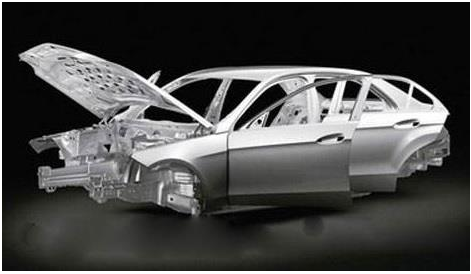CNC machining technology has revolutionized the manufacturing process in various industries, including the automotive industry. CNC machining is a computerized process that involves the use of pre-programmed software to control the movement of machines and tools that cut, shape, and finish raw materials into precise and customized parts. In this article, we will discuss the role of CNC machined parts in automotive manufacturing and how they have changed the industry.
CNC Machining Basics
CNC machining is a digital manufacturing technology that produces high-precision, high-quality components directly from CAD (Computer-Aided Design) files. The manufacturing process involves feeding raw materials such as metal, plastic or wood into a CNC machine tool which then cuts, drills or shapes it according to programmed instructions. The process is highly automated and results in repeatable, accurate parts that are scalable for high volume production.

Advantages of CNC Machining in Automotive Manufacturing
Precision and Accuracy
CNC machining is known for its high levels of precision and accuracy. The process involves the use of advanced machinery that can cut and shape raw materials with extreme precision, producing parts that meet exact specifications. This level of accuracy is essential in automotive manufacturing, where even the slightest deviation from the specification can result in significant problems.
Efficient Production
CNC machining is a highly automated process that requires minimal human intervention. The machines are programmed to perform specific tasks, which reduces the need for manual labor. This results in faster production times, and the ability to produce high volumes of parts in a shorter period.
Cost-Effective
CNC machining is a cost-effective solution for automotive manufacturing. The process eliminates the need for multiple machines, tools, and dies, reducing production costs. Additionally, the precision and accuracy of CNC machined parts means less wastage, and fewer defects, which leads to lower material and labor costs.
Versatile
CNC machining is a versatile process that can be used to produce various automotive parts, from simple brackets and fasteners to complex engine components and chassis. Its versatility makes it an attractive option for automotive manufacturers, as they can produce a range of parts using a single machine.
Role of CNC Machining in Automotive Manufacturing
Engine Components
One of the critical areas of automotive manufacturing where CNC machining plays a vital role is in the production of engine components. Engines are complex systems that require numerous parts to work together seamlessly. CNC machining is used to create high-precision parts that fit together perfectly, ensuring the engine runs smoothly and efficiently.
Suspension Components
Suspension is another area of automotive manufacturing that relies on CNC machined parts. Suspension systems use numerous components such as shock absorbers, struts, and sway bars, which must be precisely crafted to work correctly. Any imperfections could lead to problems with handling and ride quality. CNC machining ensures that these components are precise, ensuring the vehicle’s suspension performs optimally.

Transmission Components
The transmission is responsible for transferring power from the engine to the wheels, making it a critical part of the vehicle. CNC machining produces high-quality transmission components that match exact specifications, ensuring that the transmission operates efficiently.
Chassis Components
CNC machining is also used to produce chassis components, including brackets, bushings, and mounts. These components require high levels of precision to ensure that they fit perfectly and can handle the vehicle’s weight and motion. CNC machining produces parts that can withstand the rigors of daily driving and can handle various loads.
Conclusion
CNC machining technology has revolutionized automotive manufacturing by providing precision, accuracy, and cost-effectiveness in the production of complex parts. As a result, automotive manufacturers can produce high-quality parts that meet exact specifications and operate optimally. CNC machined parts have transformed various areas of automotive manufacturing, including engine components, transmission components, suspension components, and chassis components. The technology provides a cost-effective solution for producing high-quality parts at scale, which is essential for the automotive industry. As technology continues to advance, CNC machining will play an even more significant role in automotive manufacturing, providing innovative solutions for new automotive technologies.
-

- CNC koneistetut osat ja komponentit
-

- Magnesium foundry parts Steering column
-

- OEM-painevalukomponentit autojen istuimen runkoon
-

- Integroitu 3-puolainen MTB-pyörä CNC-työstyksellä ja pintakäsittelyllä
-

- Customized foundry products high precision die-casting parts for e-bike integrated frame
-

- OEM korkeapaineinen painevalettu magnesiummetallivanne sähköpyörään

 0086-750-5616188
0086-750-5616188 +86 13392089688
+86 13392089688 sales@zhongmei-tech.com
sales@zhongmei-tech.com







